As we enter autumn, many of us feel a natural urge to reset and rejuvenate. The fall season offers the perfect opportunity to focus on our health and well-being. One way to do this is through a detox program. In this blog, we’ll explore the health benefits of a carefully curated detox program and what a detox may involve!
The liver, which plays a critical role in detoxifying the body, can benefit from a little extra care, especially after the indulgences of summer and Thanksgiving. The liver is a powerhouse that performs various functions and chemical reactions. Our body depends on the liver to produce necessary chemicals for healthy digestion and for helping our body get rid of potentially harmful substances. Given the crucial role of the liver, maintaining optimal liver health is essential for optimal health and overall well-being.
How can a detox program help?
During the detoxification process, key nutrients are required. These include B vitamins, Vitamin C, Vitamin E, antioxidants, glutathione, flavonoids (found in certain foods), amino acids (such as glycine, taurine, methionine, cysteine, glutamine), minerals (magnesium, zinc), and methylated nutrients. An adequate supply of these nutrients is essential for maintaining metabolic health and lessening the oxidative stress during the body’s detoxification process. The availability of these nutrients can help support the detoxification process by encouraging the liver to produce the enzymes needed for detox. Therefore, by providing these nutrients, in addition to a detox-friendly dietary protocol, we can support the liver’s ability to detox.
What are the potential health benefits of a liver detox?
-
Enhanced liver function, digestion, and metabolism
The liver is responsible for detoxifying the body, metabolizing nutrients, and producing chemicals needed for healthy digestion. By supporting liver health, we can help improve the liver’s ability to perform its functions such as detoxification processes, digestion, and metabolism. This is done by providing the nutrients the liver needs to perform its functions. Similarly, a detox program, which involves dietary changes, can help establish dietary patterns to aid in weight management goals and improved digestion.
-
Increased energy levels and improved mental clarity
Toxins and waste products can accumulate in the liver, which may lead to fatigue, sluggishness, and brain fog. A liver detox can help to clear these toxins, resulting in increased energy levels and improved focus. Similarly, by improving digestion and enhancing nutrient absorption through a liver detox that not only includes supplementation but also better dietary patterns, we can also improve energy and brain fog if nutritional deficiencies are the cause.
-
Healthier Skin and Anti-inflammatory Benefits
The liver helps eliminate toxins that can contribute to skin issues such as acne and dull skin. By enhancing hydration and the liver’s ability to engage in detoxification processes, a liver detox can lead to clear, healthier, more radiant skin. Additionally, some of the liver-friendly nutrients and herbs included in a liver cleanse have anti-inflammatory benefits that can also contribute to lower inflammation and better skin health.
What does a liver detox usually look like?
A liver detox doesn’t have to be complicated. Typically, it involves a 1 or 2 week plan involving the following:
- A unique supplement plan tailored to your specific health goals or needs
- Increasing hydration with lots of water and liver-friendly botanical teas to help flush out toxins
- Incorporating liver-friendly foods
- Eliminating/minimizing foods that can slow down the liver’s natural detoxification processes
- A specially formulated protein powder that includes vitamins, minerals, herbs, and nutrients needed to support the body’s detoxification processes. Some of these are nutrients the body requires to effectively perform detox, and some are botanicals that have been shown to improve liver health and help protect the liver, such as milk thistle, ginseng, and turmeric.
Overall, the fall is the perfect time to get back into a routine and prioritize our well-being. It’s a transitional period, making it an ideal time for a liver cleanse or detox. As we shift from the active, social summer months to the more introspective fall, our bodies naturally crave a reset. By supporting liver health, we can embrace the season with a renewed sense of vitality and well-being.
References:
Abenavoli, L., Izzo, A. A., Milić, N., Cicala, C., Santini, A., & Capasso, R. (2018). Milk thistle (Silybum marianum): A concise overview on its chemistry, pharmacological, and nutraceutical uses in liver diseases. Phytotherapy research : PTR, 32(11), 2202–2213. https://doi.org/10.1002/ptr.6171
Cline J. C. (2015). Nutritional aspects of detoxification in clinical practice. Alternative therapies in health and medicine, 21(3), 54–62.
Farzaei, M. H., Zobeiri, M., Parvizi, F., El-Senduny, F. F., Marmouzi, I., Coy-Barrera, E., Naseri, R., Nabavi, S. M., Rahimi, R., & Abdollahi, M. (2018). Curcumin in Liver Diseases: A Systematic Review of the Cellular Mechanisms of Oxidative Stress and Clinical Perspective. Nutrients, 10(7), 855. https://doi.org/10.3390/nu10070855
Jung, S. J., Hwang, J. H., Park, S. H., Choi, E. K., Ha, K. C., Baek, H. I., Shin, D. G., Seo, J. H., & Chae, S. W. (2020). A 12-week, randomized, double-blind study to evaluate the efficacy and safety of liver function after using fermented ginseng powder (GBCK25). Food & nutrition research, 64, 10.29219/fnr.v64.3517. https://doi.org/10.29219/fnr.v64.3517
Kalra A, Yetiskul E, Wehrle CJ, et al. Physiology, Liver. [Updated 2023 May 1]. In: StatPearls [Internet]. Treasure Island (FL): StatPearls Publishing; 2024 Jan-. Available from: https://www.ncbi.nlm.nih.gov/books/NBK535438/
Panda, C., Komarnytsky, S., Fleming, M. N., Marsh, C., Barron, K., Le Brun-Blashka, S., & Metzger, B. (2023). Guided Metabolic Detoxification program supports phase II detoxification enzymes and antioxidant balance in healthy participants. Nutrients, 15(9), 2209.
Rafie, R., Hosseini, S. A., Hajiani, E., Saki Malehi, A., & Mard, S. A. (2020). Effect of Ginger Powder Supplementation in Patients with Non-Alcoholic Fatty Liver Disease: A Randomized Clinical Trial. Clinical and experimental gastroenterology, 13, 35–45. https://doi.org/10.2147/CEG.S234698


